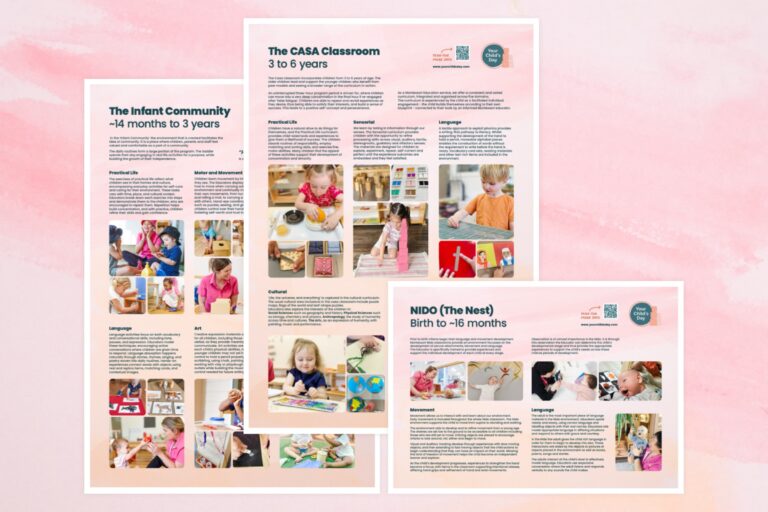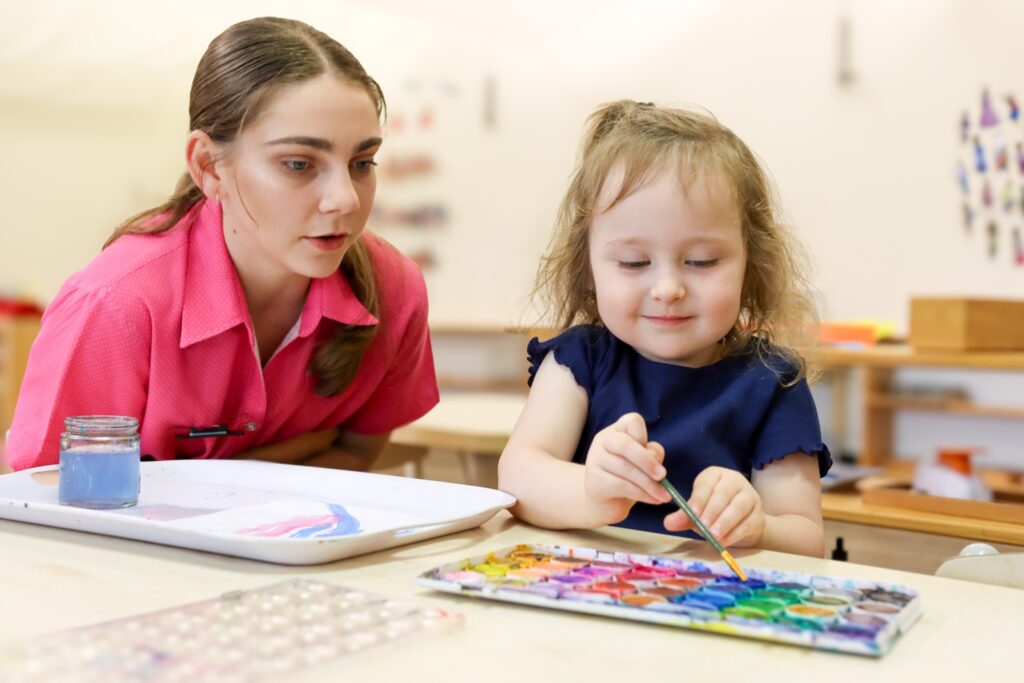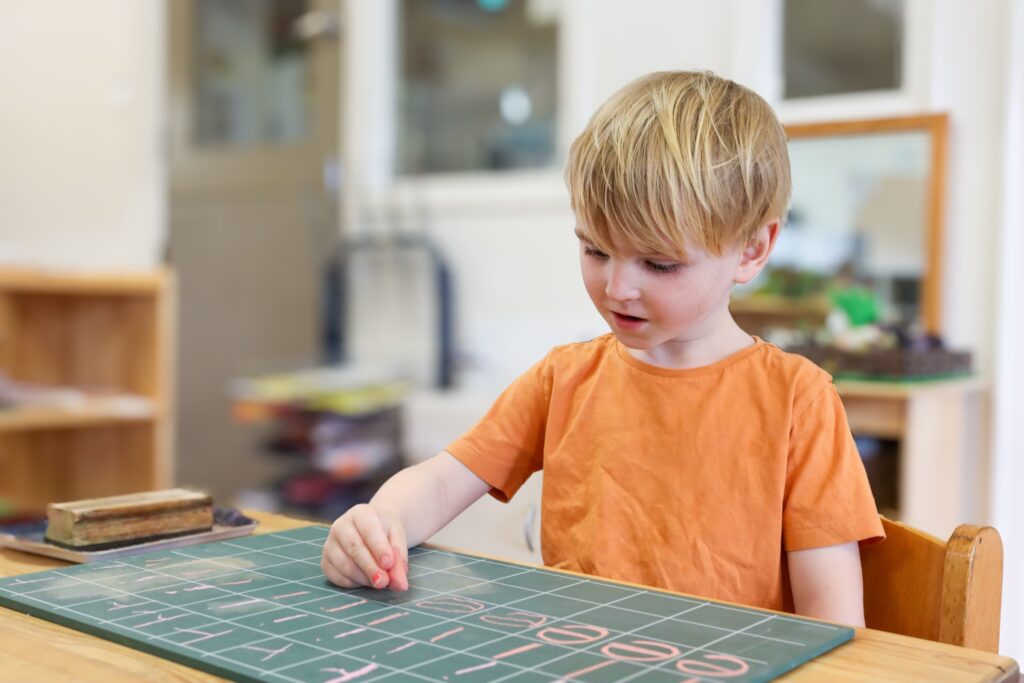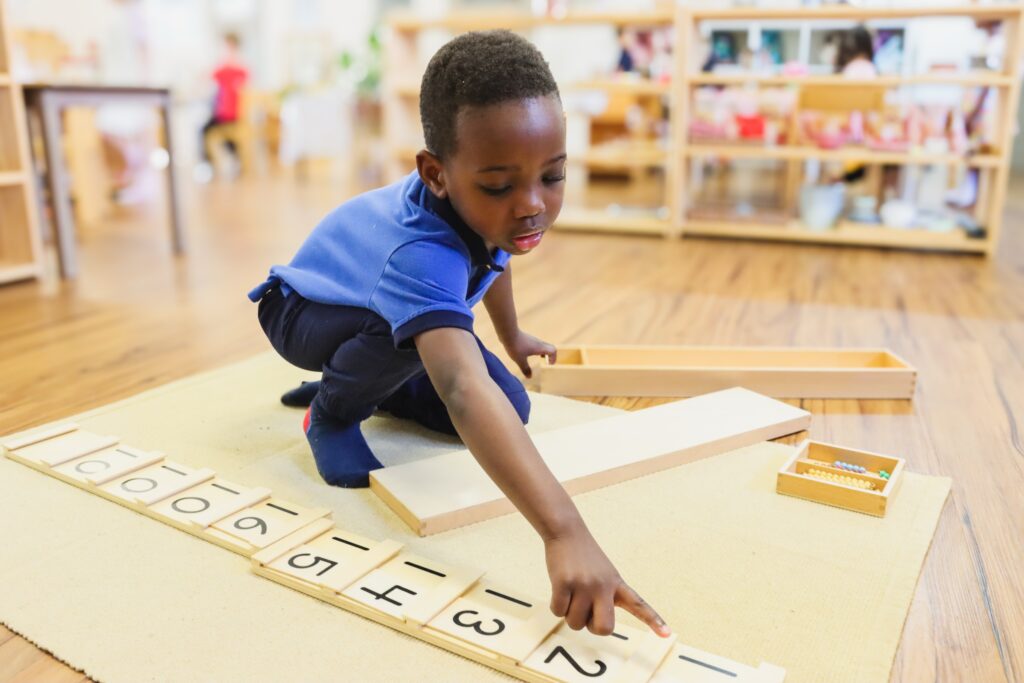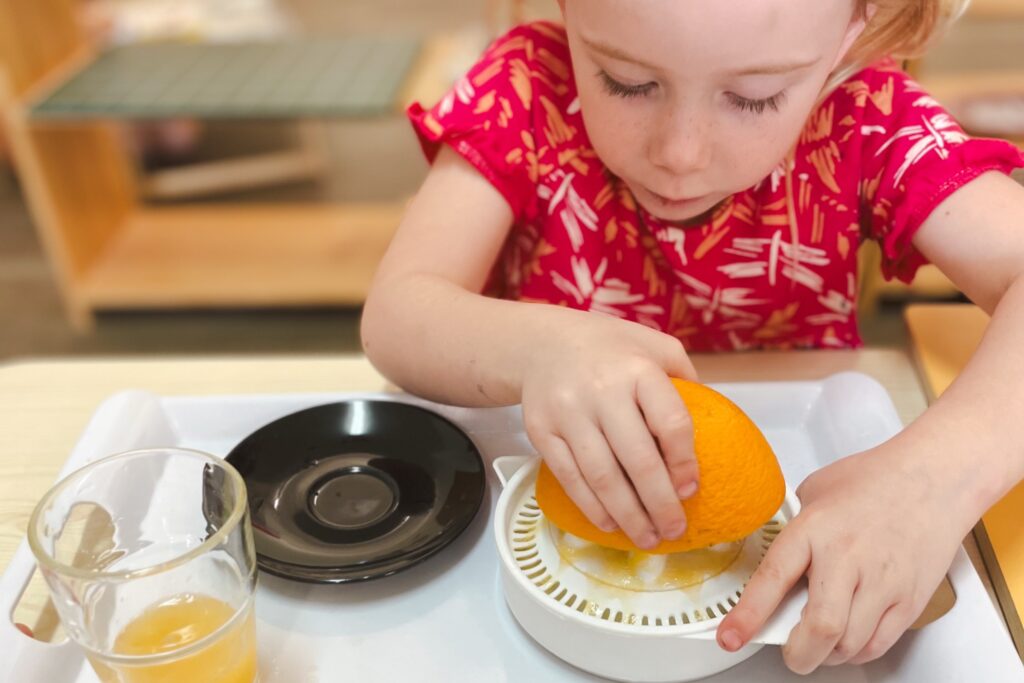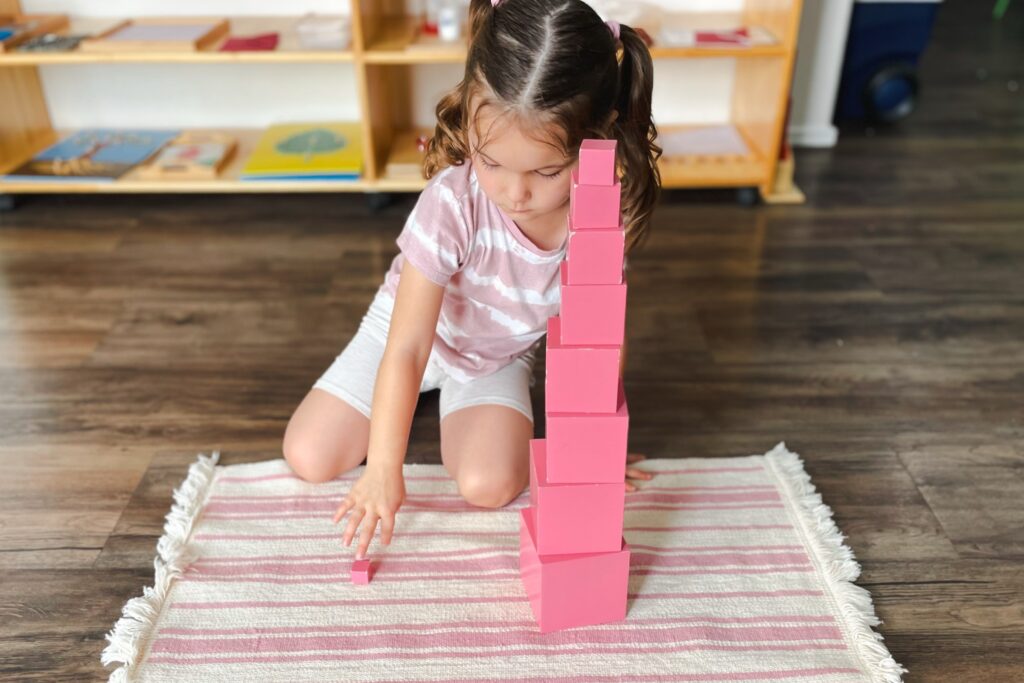The CASA Classroom
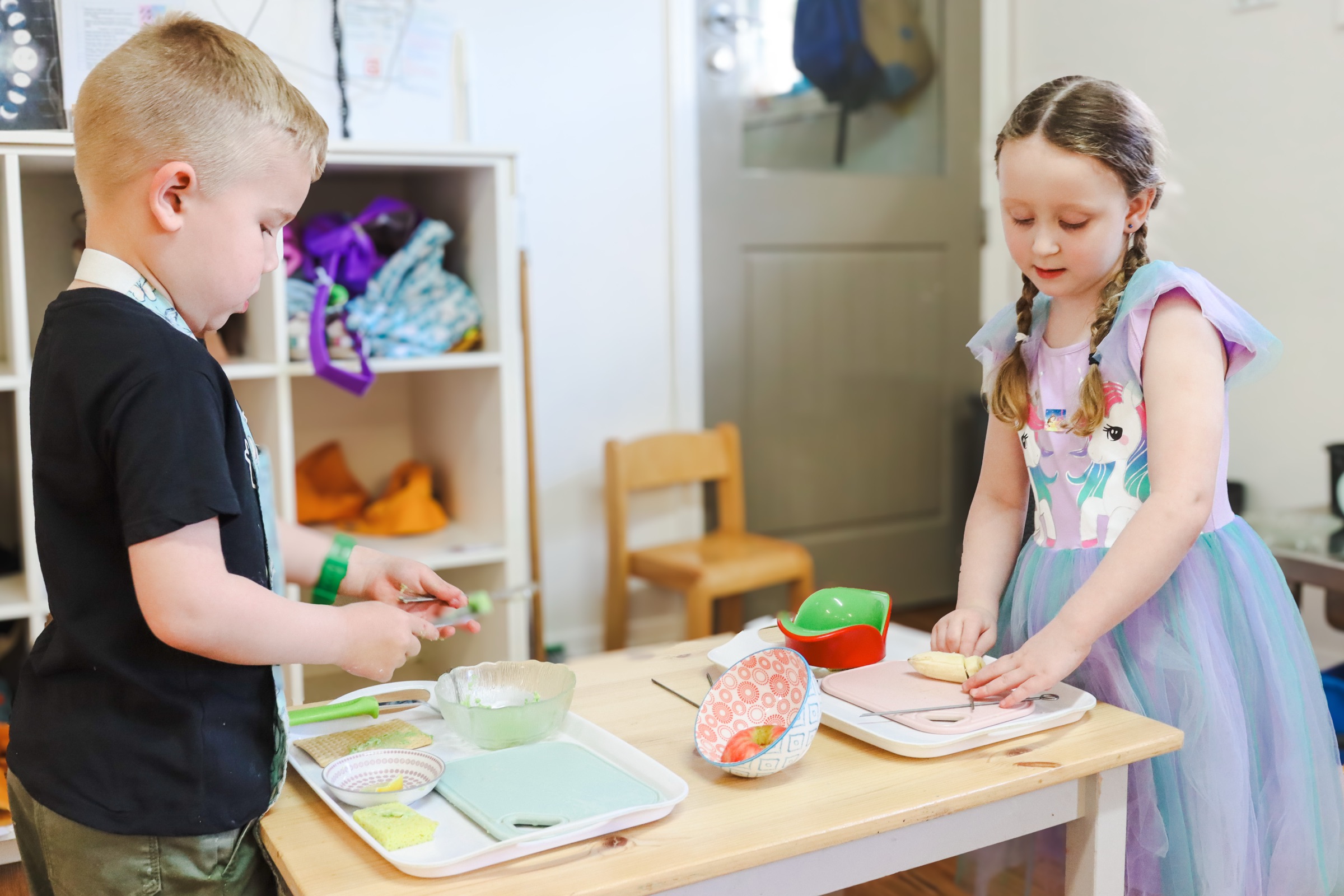
The Casa classroom incorporates children from 3 to 6 years of age. The older children lead and support the younger children who benefit from peer models and seeing a broader range of the curriculum in action.
An uninterrupted three-hour program period is striven for, where children can move into a very deep concentration in the final hour if re-engaged after ‘false fatigue’. Children are able to repeat and revisit experiences as they desire, thus being able to satisfy their interests, and build a sense of success. This leads to a positive self-concept and perseverance.
As a Montessori Education service, we offer a consistent and varied curriculum, integrated and organised across five domains. The curriculum is experienced by the child as a facilitated individual engagement – the child builds themselves according to their own blueprint – connected to their tools by an informed Montessori educator.
As far as possible, the Casa classroom incorporates children from 3 years of age to 6 years of age with the older children leading and supporting, and the younger children benefitting from peer models and seeing a broader range of the curriculum in action. An uninterrupted three-hour program period is striven for, where children can move into a very deep concentration in the final hour if re-engaged after ‘false fatigue’. Children are able to repeat and revisit experiences as they desire, thus being able to satisfy their interests, and build a sense of success. This leads to a positive self-concept and perseverance.

